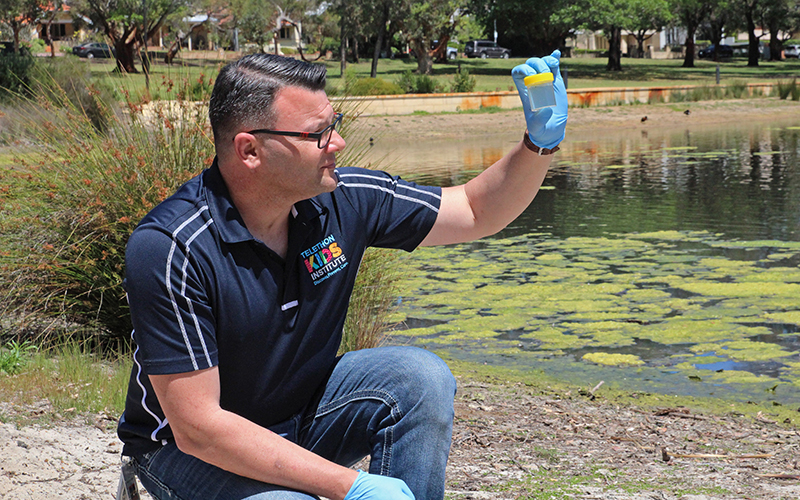Search
Showing results for "clinical trials"
Research
The effect of endotracheal tubes versus laryngeal mask airways on perioperative respiratory adverse events in infants: A randomised controlled trialEvaluating the difference of the effects of Laryngeal mask airways compared to endotracheal tubes in older children (>1 year) in incidents of PRAE in infants.
Research
Energy drink consumption is associated with anxiety in australian young adult malesEnergy drinks are predominantly targeted to young adult consumers; however, there has been limited research into their effects on psychological functioning...

News & Events
Could Perth lakes hold the secret to fighting antibiotic-resistant superbugs?Perth researchers have discovered a predatory virus living in the city’s lakes and rivers that can fight antibiotic-resistant superbugs in children.

News & Events
Covid Vaccination StatementRe: Recommendations from the Diabetes and Endocrinology Department at Perth Children’s Hospital and the Children’s Diabetes Centre at The Kids Research Institute Australia regarding COVID-19 vaccination for children with diabetes

We aim to discover and develop safer and more effective treatments by doing inventive and rigorous research to improve outcomes for kids with cancer.
Research
Kids Easy Breathing StudyAs both bronchiolitis and bronchiectasis are diseases of the airway surface, we will comprehensively study the airway surface and factors affecting the airway surface in infants hospitalised with bronchiolitis.
Research
“It’s all gone quiet…” MUSIC from COVID19Hannah Huong Christopher Moore Le Blyth OAM BSc (Hons) GradDipClinEpi PhD MA (Dev. Econ), MA (App. Stats), PhD (Econ) MBBS (Hons) DCH FRACP FRCPA PhD

News & Events
Perth researchers lead world-first clinical trial in Chile to stop COVID-19 outbreaksPerth researchers are leading an international clinical trial focused on preventing the spread of COVID-19 by testing the effectiveness of the drug interferon in reducing the infectiousness of people who contract the virus.
Research
Transiently increased IgE responses in infants and pre-schoolers receiving only (DTaP) vaccines compared to those initially receiving at least one dose of DTwP vaccineConfirm the generalised IgE-trophic activity of the DTaP vaccine in pre-schoolers and demonstrate similar (albeit transient) effects in infants
Research
Re-analysis of the association between perinatal androgens and postnatal head circumference growthThis paper is a correction of an earlier report that identified a link between exposure to high levels of testosterone during pregnancy and reduced head...
